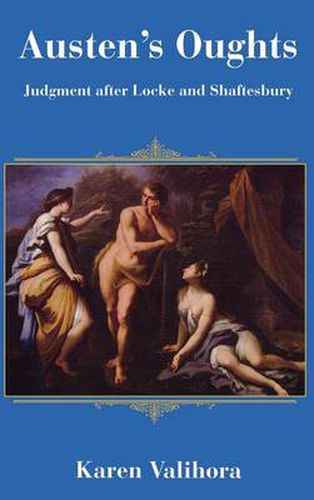Readings Newsletter
Become a Readings Member to make your shopping experience even easier.
Sign in or sign up for free!
You’re not far away from qualifying for FREE standard shipping within Australia
You’ve qualified for FREE standard shipping within Australia
The cart is loading…






The word is all over Austen’s novels: what ought to be done, what one ought to say, how one ought to feel (versus how one does feel). When Austen’s characters employ an ought, the delicate oscillation between first- and third-person perspectives that marks her prose leads the reader to distinguish between what they say, and what they ought, according to a morally idealized, third-person calculus, to mean. But what is the context of this ought? This book situates the disinterested, reflective appeal to moral principle invoked_ironically or otherwise_in Austen’s oughts within the history of thought about judgment in the British eighteenth century. Beginning with Shaftesbury’s critique of Locke’s account of judgment, successive readings explore the emphasis on disinterest in works by David Hume, Adam Smith, Samuel Richardson, and Sir Joshua Reynolds alongside discussions of Jane Austen’s major novels.
$9.00 standard shipping within Australia
FREE standard shipping within Australia for orders over $100.00
Express & International shipping calculated at checkout
The word is all over Austen’s novels: what ought to be done, what one ought to say, how one ought to feel (versus how one does feel). When Austen’s characters employ an ought, the delicate oscillation between first- and third-person perspectives that marks her prose leads the reader to distinguish between what they say, and what they ought, according to a morally idealized, third-person calculus, to mean. But what is the context of this ought? This book situates the disinterested, reflective appeal to moral principle invoked_ironically or otherwise_in Austen’s oughts within the history of thought about judgment in the British eighteenth century. Beginning with Shaftesbury’s critique of Locke’s account of judgment, successive readings explore the emphasis on disinterest in works by David Hume, Adam Smith, Samuel Richardson, and Sir Joshua Reynolds alongside discussions of Jane Austen’s major novels.